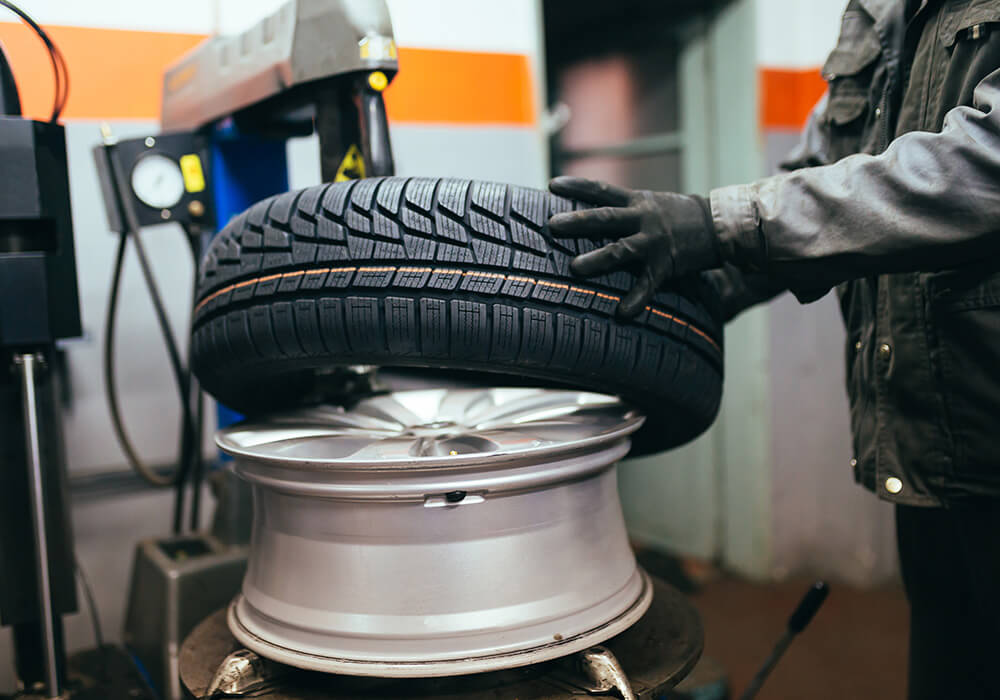Boost Your Drive: Top-Notch GMC Tires Service at Morris Tires
Tire Solution: The Influence of Weather Conditions
When it involves making sure optimum efficiency and security when traveling, comprehending the effect of weather on tire solution is important. From scorching warm to icy roadways, each weather condition element can substantially affect tire functionality and overall driving experience. By delving right into the effects of differing weather problems on tires, drivers can get beneficial insights that might enhance their lorry's performance and long life. In this discussion, we will certainly explore the complex partnership in between weather condition conditions and tire solution, losing light on the importance of weather-specific tire maintenance methods and factors to consider.
Warmth and Tire Efficiency
When exposed to high temperatures, tires experience changes in performance that can dramatically affect car safety and handling. The heat created from long term driving or heat conditions creates the tire rubber to soften, resulting in reduced tread life and raised wear. As the rubber becomes softer, the tire's grip when driving diminishes, impacting stopping ranges and overall traction. In severe cases, excessive heat can even trigger tire blowouts, presenting a severe safety danger to the car and its occupants.

Winter Effects
Cold climate problems can have a considerable influence on tire performance and safety. As temperatures decline, tire rubber can solidify, leading to reduced grip on icy or snow-covered roadways. In winter, tires might also lose air pressure extra quickly, which can impact dealing with and fuel performance. Furthermore, cool temperatures can trigger tire sidewalls to stiffen, increasing the danger of damage from pockets or other roadway dangers.
To reduce the results of winter on tires, it is critical to consistently check tire stress and inflate them to the manufacturer's advised degrees. Making use of winter months or all-season tires created for winter conditions can likewise enhance traction and hold on icy or snowy roadways. Correct tire maintenance, including routine evaluations for wear and damage, becomes even extra critical throughout colder months to make sure optimal performance and safety.
Rainy Issues Impact
Throughout rainy problems, tire performance and safety and security can be substantially influenced by the wet roadway surfaces and minimized presence. The walk pattern of tires plays an essential function in keeping grip on damp roadways. Tires with damaged treads are a lot more prone to hydroplaning, where a layer of water constructs up between the tire and the roadway surface area, bring about loss of grip. To combat this, chauffeurs ought to routinely inspect their tires for sufficient step deepness and take into consideration buying tires particularly created for damp problems.
Moreover, rainy weather can also decrease exposure, making it testing for motorists to see the roadway ahead plainly (GMC Tire Service). In such conditions, it is vital to change driving rates appropriately and keep a secure complying with range to enable for abrupt stops. Correctly inflated tires can also assist in maintaining control on damp roads by offering much better handling and hold
Snow and Tire Safety
Snow-covered roadways position unique obstacles for drivers, highlighting the relevance of correct tire selection and maintenance. When driving in snowy problems, having the best tires can make a significant distinction in security and efficiency. Wintertime tires are designed with special rubber compounds and walk patterns to give far better traction on snow and ice compared to all-season tires. The deeper treads and sipes of wintertime tires help hold the road better, lowering the risk site link of slipping and gliding.

It is crucial to follow supplier guidelines when using and mounting tire chains to avoid damage to the tires and automobile. By selecting the best tires, keeping appropriate inflation, and considering extra traction aids like tire chains, motorists can improve their safety and security when navigating snow-covered roadways.
Weather-Related Tire Maintenance
Weather-related tire upkeep encompasses an array of techniques intended at making certain ideal tire function and longevity in different my sources weather condition circumstances. One crucial aspect of weather-related tire upkeep is tire stress policy. Evaluating tire tread frequently and changing tires when walk wear gets to a specific depth is essential for preserving grip and stability in damaging weather condition.
Conclusion
In conclusion, climate conditions have a considerable impact on tire efficiency and safety and security. From heat impacting tire stress and wear to cold weather condition minimizing grip, it is necessary to take into consideration the weather when keeping and making use of tires.
In this discussion, we will certainly discover the complex partnership between weather conditions and tire service, dropping light on the value of weather-specific tire upkeep techniques and factors to consider.
